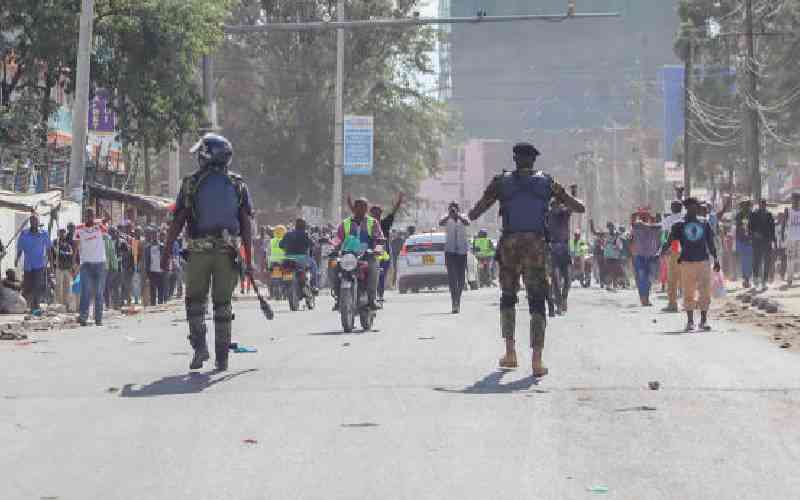×
The Standard e-Paper
Kenya’s Boldest Voice

Anti-government demonstrations could resume as soon as next week, as the Azimio la Umoja-One Kenya coalition piles pressure on President William Ruto to reduce cost of living and enact electoral reforms among other salient issues.
Azimio leader Raila Odinga on Thursday heeded calls by the civil society to have protests run concurrently with the bipartisan parliamentary talks.